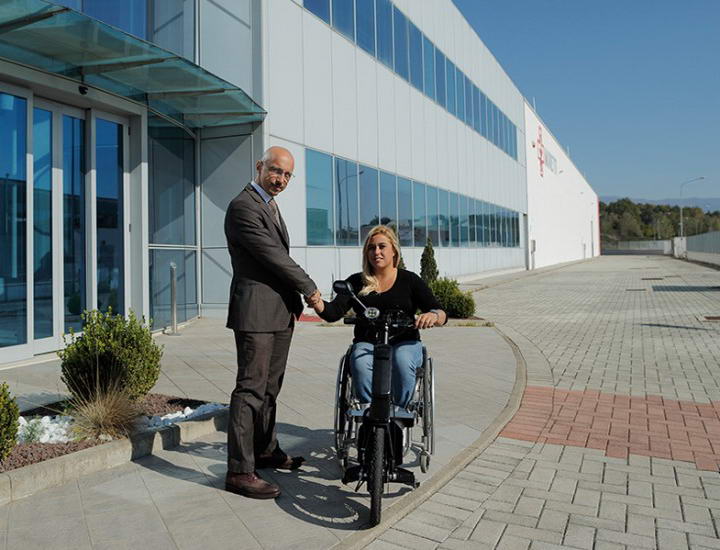Everything would be so much simpler if people would just ask and allow us to answer rather than considering us to be a gigantic sign asking for help.
We are not the wheelchair, we are people using a wheelchair.
I sometimes wish that “anyone can ask, it is a courtesy to answer” was printed on the information sheet included with the pills – if only they existed – invented to cure the Good Samaritan syndrome.
Good Samaritan syndrome.
Along your path through life you will meet so many people affected by this pathology, a world populated by people who, as soon as they see you seated in your wheelchair, just have to save you, even move you.
It is nice to ask for help and even nicer to be helped – but let it be the wheelchair user who asks for help: it often happens that when we seem to be in difficulty, we are simply taking a slightly longer route to complete an otherwise banal action.
It may even be pleasant not to have to always raise my hand to ask for help, but physically speaking, I prefer to shout rather than find myself being moved around like a sack of potatoes, without being asked where, how and what I want. I need to be able to decide where and if I want to be moved.
The handles of my wheelchair don’t have a sign on them saying “use me”.
It’s true that politeness never killed anyone, and it’s nice that people want to help, but being too intrusive is not nice or good manners. The fact is that people often assume that wheelchair users are not – and can’t be – self-sufficient, that they can’t get over a small obstacle, and this is because they can’t see things from their point of view.
A person who lives in a chair has objective limits to their ability which they have to deal with and overcome in order to create their own form of self-sufficiency. For example, when I am faced with a steep slope, I push myself up it in a zig-zag to make the slope easier to handle.
I love these little compromises.
Extremes frighten me, and I wish that people would learn that the person seated in this chair is indeed a person, that the wheelchair is not the person, that we are not objects: we have to find a way to make people understand this without being argumentative or less courteous than those who don’t understand.
People who have no physical disability may think it isn’t always easy to understand when help is requested or needed, in situations which may or may not be dangerous – I’m not saying that we never need help, but I wish people would learn to simply ask: “can I help? Do you need a hand?”










